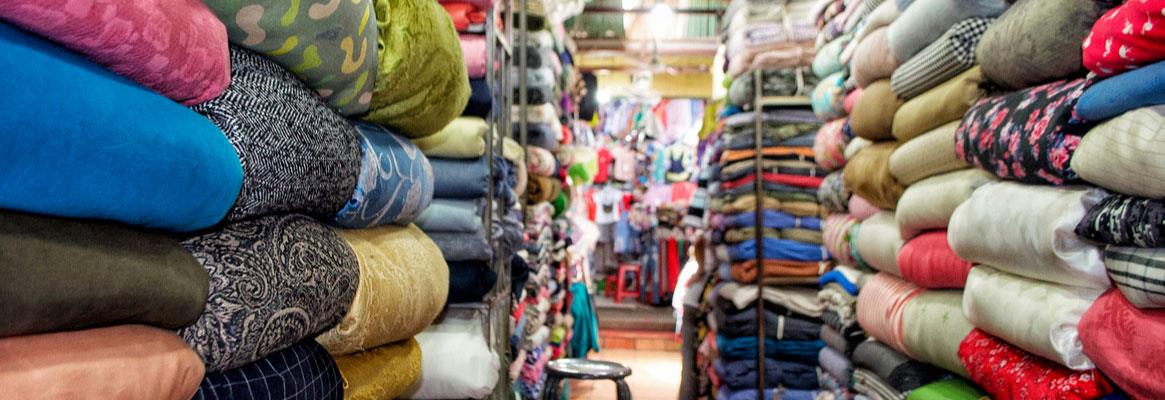Cambodia's factories have not received orders from buyers since May and around 256 garment, footwear and travel goods factories have suspended their operations due to the COVID-19 pandemic, affecting more than 130,000 workers. In such a scenario how is the country fighting back?
At present, Cambodia is one of the fastest developing nation in the Southeast Asia and has posted high economic growth of around 7 per cent annually. Approximately half of the population is under the age of 25, so a robust economic growth is expected soon. Cambodia's per capita gross domestic product stood at $1,500 in 2018. Cambodia has world-renowned cultural attractions such as the Angkor Wat, abundant labour resources and friendly policies towards foreign investment.
Cambodia possesses few regulations on foreign capital. In many sectors, investment is allowed on reporting and 100 per cent foreign investment is permitted. Transactions are commonly done through US dollars in order to reduce the exchange risks. Such investment projects are exempted from corporate tax and import duties for raw materials and facilities for up to nine years.
Lower wage level is another critical point for investment and development. In 2019, the minimum monthly wage in Cambodia's garment sector was $182, about 60 per cent of that of neighbouring country Thailand. Cambodia has the highest labour force participation rate in ASEAN.
Cambodia is benefitted with the Generalized System of Preferences. Under this preferential tariff system, goods imported from developing economies are granted reduced or zero tariff rates. Under GSP, Cambodia can enjoy tariff benefits when exporting products to the US, the EU and Japan.
Cambodia has great growth potential. But its poor infrastructure, rampant corruption, and low labour productivity are cited as stumbling blocks. The country was placed 133rd in labour market competitiveness in 2018. Government has promised to raise the minimum wage to $250 by 2023.
Garment export/import of Cambodia
As per NBC's (National Bank of Cambodia) report, the garment exports of the country has diminished more than 5 per cent to around $3.78 billion in the first half of this year compared to more than $4 billion in the same period in 2019. Based on the semi-annual report from the NBC, in the first half of 2020, Cambodia's trade deficit plunged by 20 per cent.
Imported products have declined by 5 per cent because of a drop of imported raw materials in the garment sector which fell by 15 per cent. The decrease in imported raw materials for textiles and garment industry has been caused by an interrupted supply from China, which was affected by tough COVID-19 restrictions in early 2020.
Cambodia's garment, footwear and travel goods are an important sector for revenue generation in the country and have earned approximately $9.32 billion last year, up 11 per cent compared to the year before.
Labour situation and actions from government/ trade bodies
As per the labour ministry, the factories did not receive any orders from buyers in May and June. It may continue in the foreseeable future as well. Hence most of the factories have been suspended in the country.
According to Cambodian Prime Minister Hun Sen, around 256 garment, footwear and travel goods factories in Cambodia have suspended their factory operations due to the COVID-19 pandemic, affecting more than 130,000 workers. Approximately 169 tourism companies have also temporarily closed their manufacturing units which kept roughly 16,891 people unemployed. In order to remove the pressure of unemployment, the Cambodian government has decided to pay $70 a month to each of the workers.
In June, Cambodia's labour ministry had discussions for next year's minimum wage for workers in the textile, garment, and footwear sectors. The monthly minimum wage for garment workers in 2020 is $190. It is tough to take decision on the minimum wage with the country battling the COVID-19 pandemic.
The Garment Manufacturers Association in Cambodia (GMAC) has requested the Ministry of Labour to stall minimum wage negotiations in the textile, garment, and footwear sector for 2021 which was planned between July and September, with poor demands from foreign buyers and factory shutdowns due to the outbreak of COVID-19.
Better Factories Cambodia (BFC) has started a hotline number to provide information to workers in the garment, footwear, travel goods and bag industries to protect them against the spread of COVID-19. The hotline, part of the 'COVID-19: Worker Safety' programme, uses interactive voice response (IVR) technology. The service's content is drawn from guidance and recommendations from the World Health Organization and the Ministry of Health and will be revised periodically in accordance with the current official advice.
Cambodian government has given permission to GMAC to produce all kinds of face masks, medical equipment and protective clothing for domestic consumption and export them under the threat of rapid spread of COVID-19.
According to the Cambodian Ministry of Labour and Vocational Training, export of garments and footwear were forecasted to drop by 50 to 60 per cent in the 2nd quarter of this year due to the impact of the pandemic. Approximately 80 per cent of country's garment exports declined in 1st quarter year-on-year as the pandemic spread in the EU and the US.
Recompense impact caused by suspension of EBA
The Garment Manufacturers Association of Cambodia (GMAC) and the Cambodia Footwear Association (CFA) have requested the EU to postpone its partial withdrawal of the Everything but Arms agreement (EBA), a preferential zero-tax trade deal provided by the EU to end in August. Once the withdrawal becomes effective, the EU will shift out of Cambodia to other duty-free countries.
In the beginning of the year 2020, the EU had suspended Cambodia's eligibility for its EBA status because of growing concerns regarding human rights in the country. It includes crackdown on labour unions, a lack of accountability for poor working conditions, gender discrimination, long working hours, underpayment, and noncompliance with international labour standards.
On June 2, the GMAC and CFA together with European Chamber of Commerce (Eurochambers) had already sent a letter of appeal to the EU to postpone the scheduled August 12 implementation of the partial suspension of EBA benefits for Cambodia.
GMAC said that the spread of COVID-19 has already devastated the country's garment, footwear and travel goods manufacturers' and workers' situation. An estimated loss would cost approximately $1.1 billion. The partial withdrawal of EBA would be double blow to the sectors such as textiles and garments, and footwear. GMAC also said that Cambodian garments are one of the few formal sector employment opportunities for rural women of the country. This withdrawal may avoid sourcing from Cambodia altogether, creating a further downward spiral that could collapse the sectors.
Progress with FTA and manufacturing shift
Free Trade Agreements
Cambodia has made a progress on Free Trade Agreement (FTA) with China and South Korea. South Korea and Cambodia finished a joint feasibility study on the FTA in May 2020 and agreed to start domestic procedures to pave the way for official talks.
The Cambodian government has already enabled the export of some goods to the South Korean market through the World Trade Organisation (WTO). The total trade between Cambodia and South Korea was valued at $1 billion in 2019, up 36 per cent from $756 million in 2018. South Korea mainly exports knitted textile materials to Cambodia. South Korea mostly imports clothing and shoes from Cambodia. Some Korean garment manufacturers have also established their manufacturing units in the country to import the goods produced there.
The Cambodia-China FTA is expected to boost the country's exports and investments in raw material supplies, according to analysts. The FTA is expected to boost bilateral trade to $10 billion by 2023. The total trade between the two countries was $7.4 billion in 2018, up 22 per cent compared to $6.04 billion in 2017.
Cambodia is consistently trying to increase the trade with potential trade partners with the help of FTAs to mitigate the effects of suspension of the EU's EBA trade status scheduled to come in effect on August 12, 2020.
According to deputy prime minister of Cambodia, the country will sign an FTA with China before August 12, when the EU's partial withdrawal of the EBA deal comes into effect. An FTA with China, the world's 2nd largest economy will open the door for more Cambodian goods.
According to the Ministry of Economy and Finance (MEF), the country's new investment law is expected to be online soon because the draft law is already 95 per cent complete and that will be more attractive to more investors. According to the MEF, they would start FTA with South Korea and have plans for Japan, UK, India, Mongolia, the Eurasian Economic Union (EAEU) and the US.
Manufacturing Shift
According to a report by Fitch Solutions, Cambodia gained the most from shifts in apparel manufacturing. China's reduction of apparel manufacturing operations has created new opportunities for its neighbouring countries to expand their manufacturing services to North America and Europe at China's expense. Low labour costs and favourable investment policies along with full foreign equity ownership in the textile sector is supporting the shift.
Being able to use Vietnamese shipping ports, Cambodia gets help with transport and import of raw materials from China.








Comments